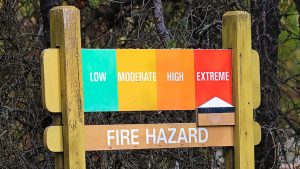VANCOUVER – The BC Construction Safety Alliance has released a pair of documents to assist construction professionals to prepare for and work within wildfire smoke conditions.
The first document, Effective ECP on Wildfire Smoke, contains instructions on developing an exposure control plan (ECP) for the use of both employers and employees.
Sections include an explanation of the responsibilities of the prime contractor, owner, employers, supervisors and workers as well has co-ordination at a multiple-employer workplace. Additionally, the document looks at aspects of risk identification, assessment and control and control methods for exposure for wildfire smoke.
Another document titled Managing the Health Risks of Poor Air Quality During Wildfire Season in B.C. goes into detail the composition of wildfire smoke and its harmful effects on human beings, such as irritation of the eyes, nose and throat, coughing, headaches and other symptoms.
The document also includes an Air Quality Health Index guide along with a QR code to check current air quality conditions in different regions of British Columbia as well as recommendations for creating indoor areas and clean air refuge zones and respirator use.
The BCCSA also has documentation on heat stress management and protecting construction sites from fire along with an array of Toolbox Talks focused on fire and smoke safety available online.
WorkSafeBC has also issued a release urging employers in B.C.’s southern interior to protect workers from smoke exposure.
“Breathing in smoke can be dangerous for workers, as it is a form of air pollution that contains a complex mixture of harmful gases, fine particles, and chemicals. Prolonged exposure can lead to a range of health issues, including respiratory problems, an aggravation of asthma, eye irritation and increased susceptibility to respiratory infections,” WorkSafeBC risk analysis unit senior manager Colin Murray said in a statement.
The release also said employers must eliminate smoke exposure wherever possible for both indoor and outdoor workers.










Recent Comments
comments for this post are closed